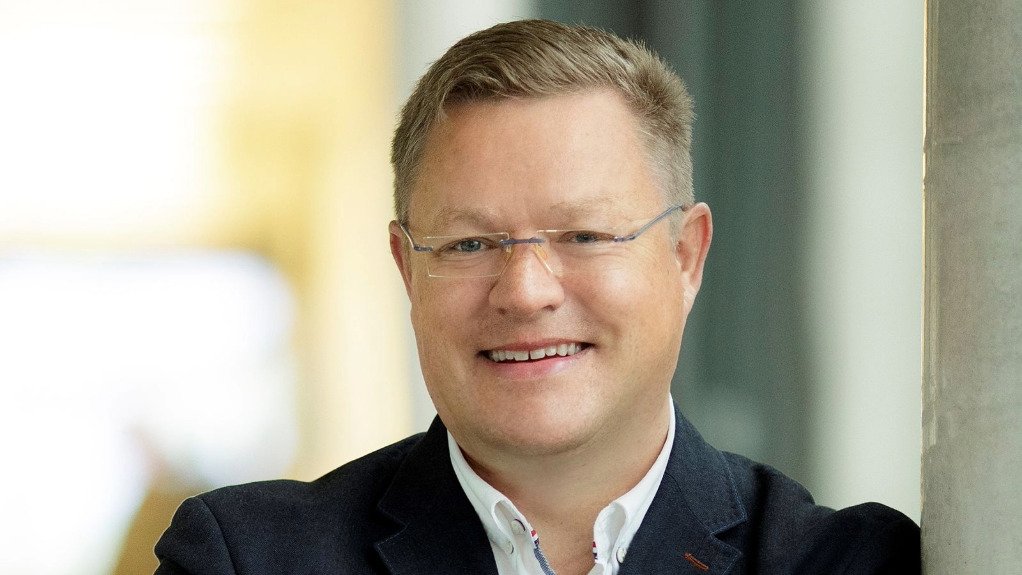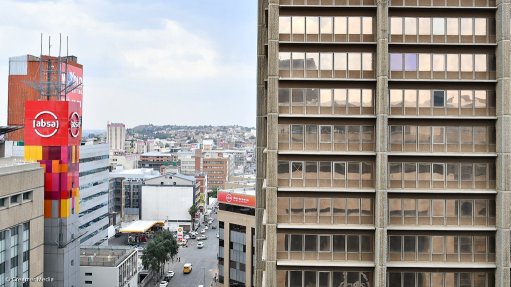Gas users call for fiscal guarantees to advance gas-cliff avoidance projects to ‘transactional level’
Industrial Gas Users Association South Africa (IGUA-SA) CEO Jaco Human has called for the urgent finalisation of a fiscal guarantees framework to help progress, to a “transactional level”, the infrastructure required to mitigate an impending gas supply crisis.
In a presentation to the Portfolio Committee on Electricity and Energy, Human welcomed recent shifts in government thinking regarding the future role of gas, including using gas-to-power (GtP) projects to anchor demand for the importation of liquefied natural gas (LNG).
He warned, however, that the strategy was not yet pragmatic enough to support immediate investment, adding that the pathway for implementing near-term mitigation measures remained “vague”.
“Industrial users require a roadmap with defined actions, timelines, policy commitments, and we certainly do not require rounds of further consultation or vision statements,” Human said during a committee meeting attended by Mineral and Petroleum Resources Minister Gwede Mantashe.
IGUA-SA calculates that South Africa has a nine-month window to finalise a fiscal framework, develop a gas-aggregation platform, and conclude the transactions needed to facilitate the investment decisions needed for the construction of LNG importation infrastructure by mid-2030.
Its assessment of project readiness also indicates that only LNG import-terminal projects in Mozambique, which would link directly into the existing Rompco pipeline from Maputo to Gauteng, could be built in the timeframe available.
An import terminal proposed for Richards Bay was also advancing, but Human argued that it would not be developed in time, and would also mostly service a regional industrial market in KwaZulu-Natal rather than hinterland demand.
“Right now, it is important to focus on the short-term enablers, which are demand aggregation, and a public-private partnership for the guarantee structure that is required to underpin these investments.
“There are many options and schemes available but it is important that these parties get around the table and talk at a transactional level,” Human said, urging that policy be developed in parallel to address the country’s medium-term gas strategy.
IGUA-SA, which has 600 members that collectively employ 75 000 people and contribute about R600-billion yearly to South Africa’s GDP, was also moving ahead with its Gas Hub demand aggregation initiative.
The not-for-profit platform would be open to gas offtakers, traders, State-owned enterprises and small companies and could compete with Sasol, which has hitherto dominated gas supply and which has a stated goal of becoming a gas aggregator itself.
Sasol also made a presentation to the committee, in which it confirmed that the gas supply plateau from its depleting Pande and Temane gas fields in southern Mozambique had been extended to 2028 from 2026.
SUPPLEMENTAL SUPPLY
In addition, it confirmed again that it was working to supplement supply to 2030, and possibly beyond, by supplying synthetic methane rich gas (MRG), produced from coal, to industrial customers.
The MRG would cost more than the gas being imported from Mozambique, partly because of higher production costs and partly because Sasol would face the opportunity cost of diverting gas it would have used to produce fuels and chemicals to industrial customers.
The sale and pricing of MRG would require the approval of the National Energy Regulator of South Africa and an application was being prepared.
However, Sasol along with other industry stakeholders, including IGUA-SA, viewed it as a “bridging solution” ahead of the importation of LNG.
Such importation, while far more expensive, was regarded as the only realistic option for meeting demand in the short- to medium-term, because South Africa had not yet developed any commercial domestic projects, despite making discoveries, mostly off its West Coast.
Mantashe lamented that the current discussion on gas supply was dominated by LNG and again argued for the development of South Africa’s own resources.
South African Oil and Gas Alliance chairperson Craig Morkel also highlighted South Africa’s domestic production potential, but added that while the “ambition is amazing, the constraints are real”.
This despite significant progress offshore neighbouring Namibia, where there had been discoveries of 9-billion barrels of oil equivalent in the Orange basin that extends across the border of the two countries, and where it is estimated that there will be 778 000 bl/d of production by 2035.
“We look forward to the day when we can exploit this domestic gas resource, but in the meantime, the short-term solution has to be the importation of LNG,” Morkel added.
Article Enquiry
Email Article
Save Article
Feedback
To advertise email advertising@creamermedia.co.za or click here
Press Office
Announcements
What's On
Subscribe to improve your user experience...
Option 1 (equivalent of R125 a month):
Receive a weekly copy of Creamer Media's Engineering News & Mining Weekly magazine
(print copy for those in South Africa and e-magazine for those outside of South Africa)
Receive daily email newsletters
Access to full search results
Access archive of magazine back copies
Access to Projects in Progress
Access to ONE Research Report of your choice in PDF format
Option 2 (equivalent of R375 a month):
All benefits from Option 1
PLUS
Access to Creamer Media's Research Channel Africa for ALL Research Reports, in PDF format, on various industrial and mining sectors
including Electricity; Water; Energy Transition; Hydrogen; Roads, Rail and Ports; Coal; Gold; Platinum; Battery Metals; etc.
Already a subscriber?
Forgotten your password?
Receive weekly copy of Creamer Media's Engineering News & Mining Weekly magazine (print copy for those in South Africa and e-magazine for those outside of South Africa)
➕
Recieve daily email newsletters
➕
Access to full search results
➕
Access archive of magazine back copies
➕
Access to Projects in Progress
➕
Access to ONE Research Report of your choice in PDF format
RESEARCH CHANNEL AFRICA
R4500 (equivalent of R375 a month)
SUBSCRIBEAll benefits from Option 1
➕
Access to Creamer Media's Research Channel Africa for ALL Research Reports on various industrial and mining sectors, in PDF format, including on:
Electricity
➕
Water
➕
Energy Transition
➕
Hydrogen
➕
Roads, Rail and Ports
➕
Coal
➕
Gold
➕
Platinum
➕
Battery Metals
➕
etc.
Receive all benefits from Option 1 or Option 2 delivered to numerous people at your company
➕
Multiple User names and Passwords for simultaneous log-ins
➕
Intranet integration access to all in your organisation





















